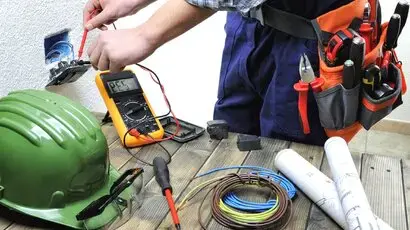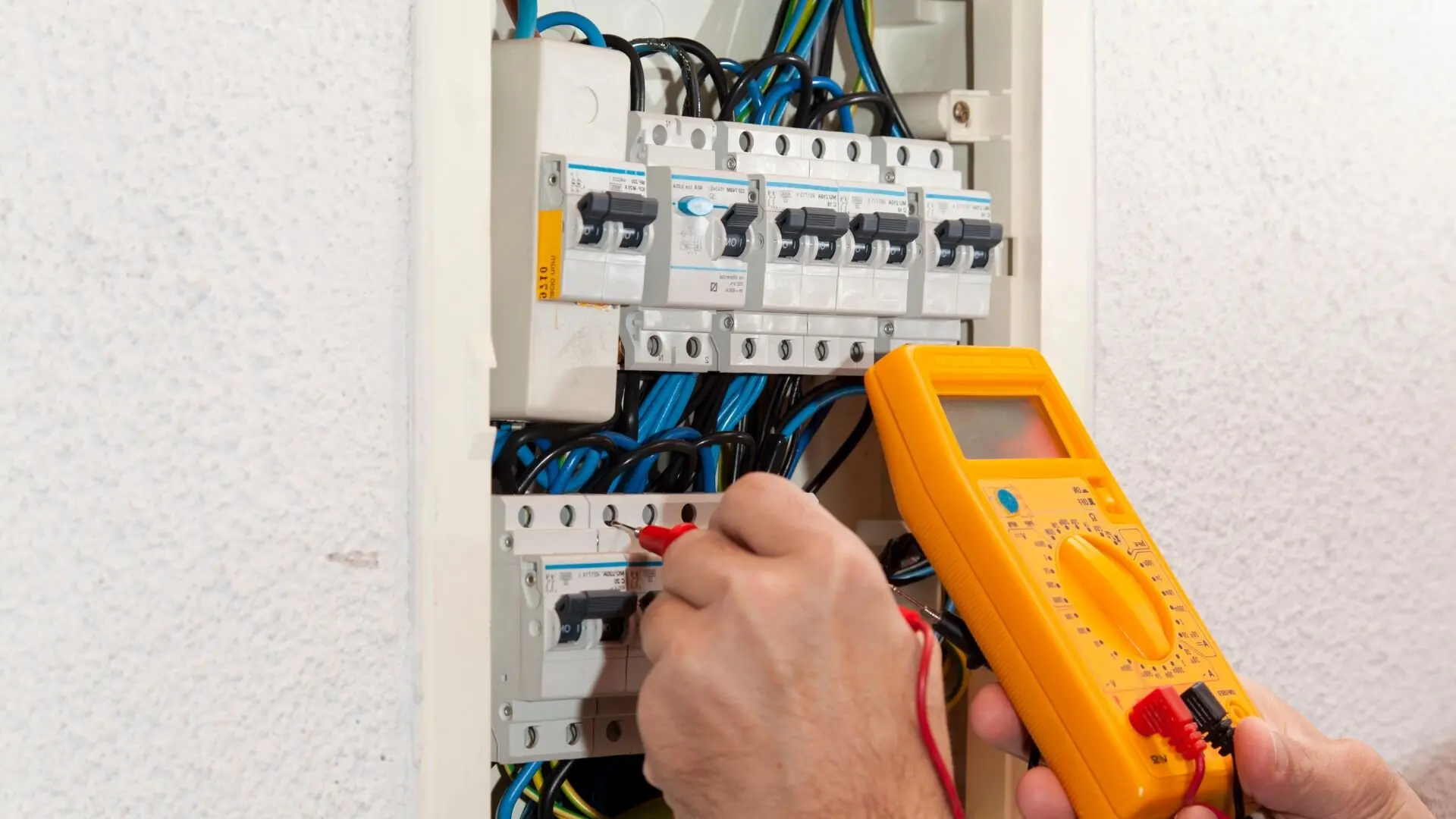
Get your free Melbourne Electrician quote today!
Our team of Melbourne Electricians is here to help you with any questions or concerns you may have. We’re committed to providing you with the best possible service and support.
Understanding Electrical Codes and Standards
Electrical systems are the lifeblood of any commercial building, powering everything from lighting and HVAC to critical equipment. Electrical codes and standards play a vital role in ensuring the safety and functionality of these systems. These established guidelines dictate electrical components’ design, installation, and maintenance , minimising the risk of fires, shocks, and equipment failure.
Several electrical codes and standards are relevant to commercial projects in Melbourne, Australia. The primary one is AS/NZS 3000: Wiring Rules . This comprehensive document outlines the essential requirements for safe electrical installations. However, other standards may come into play depending on the specific building use, such as those addressing fire safety or medical facilities.

The AS/NZS 3000 is organised into sections, each zeroing in on vital parts of electrical installations. Let’s take a quick look at some of the key sections you’ll find:
- Design Verification : This section ensures electrical systems are designed to handle the anticipated load without overloading circuits or overheating equipment. It specifies calculations and methods for verifying the system’s capacity.
- Wiring Methods : Different cables and installation methods are suitable for various applications. This section outlines the appropriate wiring methods based on voltage, location, and fire resistance.
- Equipment Selection : From switchboards to lighting fixtures, the standard guides the selection of suitable equipment with the correct capacity and safety features for the intended use.
Staying up-to-date with the latest amendments and revisions to the AS/NZS 3000 is really important. The code is regularly updated with new technologies and best practices, keeping it fresh and relevant.
Electrical codes and standards are not mere suggestions but the foundation for safe and reliable electrical systems. In Melbourne, AS/NZS 3000 is the cornerstone for ensuring commercial buildings function smoothly and minimise electrical hazards.
Key Electrical Considerations for Commercial Projects
Planning and executing commercial electrical projects meticulously is key to ensuring safety, functionality, and compliance with regulations. Electrical codes and standards play a vital role at every stage, ensuring everything runs smoothly and giving you peace of mind.
The Electrical Code Compass: Guiding Every Step
Project Planning and Design
Electrical codes establish the framework for power distribution, lighting layouts, and equipment placement from the outset. Understanding load capacity, circuit requirements, and emergency power ensure a safe and efficient system.
Selection of Electrical Equipment and Materials
Electrical codes govern the specifications for equipment and materials used in the project. This ensures compatibility, safety ratings, and suitability for the intended purpose. Every component adheres to the code, from choosing the right size of wires and circuit breakers to selecting appropriate lighting fixtures .
Installation and Testing
The installation must follow the code’s guidelines for wiring methods, grounding practices, and connection procedures. Once the installation is complete, rigorous testing verifies proper functionality and ensures the system meets code-mandated safety standards.
Inspection and Certification
Independent from the electrician, a qualified inspector scrutinises the completed work against the electrical code. Upon successful inspection, the project receives certification, signifying compliance and granting operational permission.

A qualified, licensed commercial electrician is your go-to partner when it comes to navigating the tricky world of electrical codes. Their expertise is absolutely invaluable from start to finish:
- Code Interpretation : Electrical codes can be intricate documents. A qualified electrician possesses the knowledge and training to decipher these regulations and translate them into actionable plans for your project.
- Material Selection : Selecting the right electrical equipment and materials is crucial for safety and project success. The electrician understands code requirements and ensures every component adheres to the specifications.
- Safe and Compliant Installations : A qualified electrician’s experience guarantees that the installation adheres to the code’s safety protocols. They employ the proper techniques, tools, and materials to create a system that minimises risks and protects your property and personnel.
The Benefits of Compliance
Following electrical codes and standards in commercial projects isn’t just about following the rules; it’s about safeguarding your investment and ensuring a safe and functional environment. Here’s why compliance is key:
- Safety First : Up-to-code electrical systems prioritise the well-being of occupants and equipment. Proper installation minimises the risk of fires, electrical shocks, and malfunctions, protecting lives and valuable assets.
- Building Confidence : A compliant electrical system fosters a sense of security and trust within the building. Tenants and employees can work peacefully, knowing the electrical infrastructure follows the latest safety protocols.
- Efficiency Pays : Following codes often leads to a more efficient system. Proper sizing and installation ensure optimal power distribution, potentially reducing energy consumption and long-term operational costs.
- Time is Money : Obtaining permits and approvals goes smoother when electrical systems comply with regulations. Avoiding delays due to non-compliance issues saves time and money, keeping your project on track.
Compliant Commercial Electrical Solutions in Melbourne
Understanding Melbourne’s commercial electrical codes and standards can feel like untangling complex regulations. But fret no more! This blog has provided a foundational understanding of the key resources and considerations for navigating electrical compliance in your commercial space. Remember, safety is paramount, and adhering to these regulations is crucial for preventing electrical hazards and ensuring a smooth operation.
Consider partnering with a trusted electrical company like WP Electrical for peace of mind. Our team of Melbourne-based, licensed electricians possesses in-depth knowledge of all relevant electrical codes and standards. We’ll guide you through the process, ensuring your commercial space meets all safety requirements and functions flawlessly. Speak with our WP Electrical team today – let us illuminate the path to electrical compliance and safety for your business.
Frequently Asked Questions
I’m not an electrician, but I’m managing a commercial property. Do I need to know the electrical codes?
While you don’t need to be an expert, a basic understanding of electrical codes is helpful. It allows you to communicate effectively with electricians and ensure they adhere to safety regulations.
What are the main electrical codes and standards in Melbourne?
The core standard is AS/NZS 3000 Wiring Rules , covering electrical installation design, construction, and verification.
Where can I find a copy of the AS/NZS 3000 Wiring Rules?
The complete standard can be purchased from Standards Australia [standards.org.au] . However, there are resources available online that outline the key requirements.
Is it safe to do any electrical work myself on my commercial property?
Hiring a licensed electrician for any electrical work beyond simple tasks like changing light bulbs is strongly advised. Electrical work can be dangerous and requires specialised knowledge to comply with safety regulations.
Published by: Pascal Harb17 October 2025